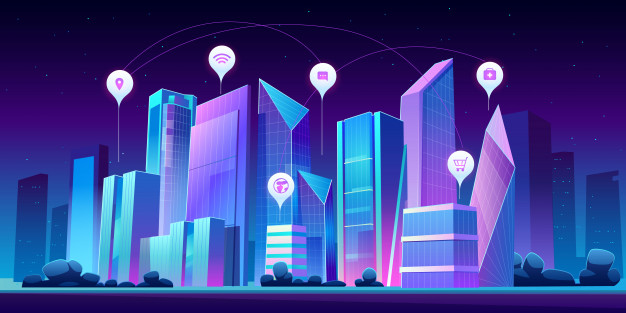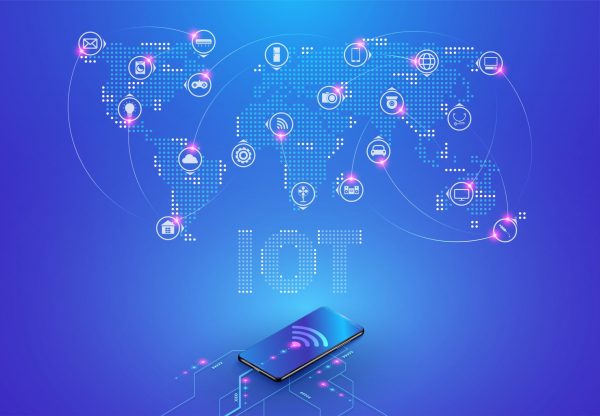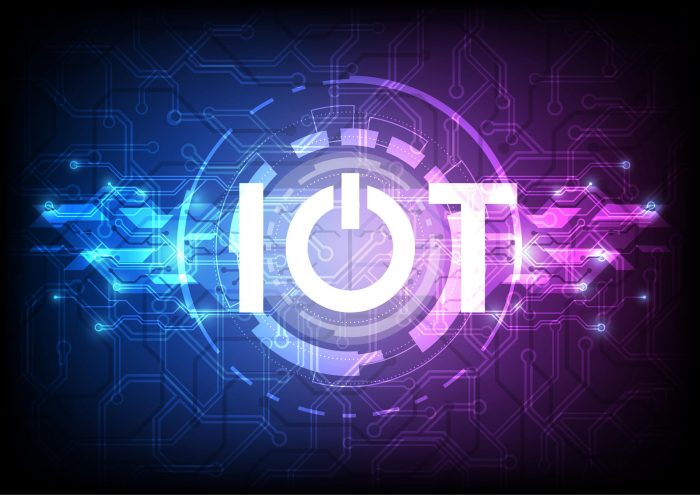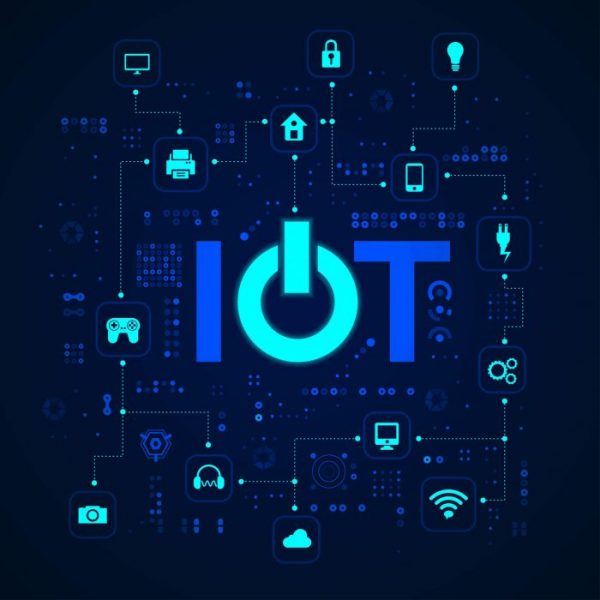Leveraging IoT & Related Technologies in Real Estate & PropTech
Audio : Listen to This Blog.
As various industries started embracing digital technologies, we started coining buzzwords. For example, there was ‘fintech’, ‘adtech’, and ‘insurtech’ that referred to how sectors like financial services, advertising, and insurance we gearing up for change by embracing digital tools and technologies.
Over the last few years, real estate and property management – among one of the largest industries globally – caught up to the race and started making strides in the digital era with PropTech.
Table of Contents
So, what is PropTech?
While there are several definitions out there, to put it simply, PropTech is the digital transformation that companies in the real estate space are undergoing, in adopting newer technologies to build, manage, market, buy, sell or rent commercial and residential properties. To expand this definition a little further, PropTech is also spearheading the foray into ‘Smart Cities’, laying the foundation to go beyond single buildings or facilities.
The key technology at the heart of PropTech is IoT, where IP devices and smart sensors are enabling data-driven decision making. While in certain reports PropTech refers to a combination of four areas: smart real estate, construction technology (ConTech), fintech within real estate including mortgage technology, and consumer-facing tech like real estate market places.
In this post (and at Msys Digital) our focus is on the Smart Real Estate segment. This includes IoT-enabled commercial and residential real estate, in addition to smart cities.
In September 2018, KPMG International published its annual KPMG Global PropTech Survey that highlighted the key role of technology in real estate and property markets. Like it is the case in most industries, technology is an enabler. Embracing technology and digital transformation results in:
- Improved customer experience
- Greater collaboration
- Enhancing the efficiency of operations
- Positive impact on financial performance
- Predictive analytics to improve future business performance
This may sound like standard speak, but it is an important point. CIOs and technology leaders in real estate and property management are looking to understand the specific impact of IoT and digital transformation in meeting short-term and long-term business goals.
“There has to be a clear, direct link between technology investments and business impact.”
Here are some key data points from the KPMG Survey to ponder over:
- 97% of the leaders interviewed believed that digital and IoT will impact their business positively.
- 93% believed that traditional real estate companies must collaborate with specialized PropTech firms or specialists to experience real impact.
- 73% feel it is a real opportunity to take the industry to the next level. But 25% viewed it as a threat.
- One glaring statistic was that over 56% of the leaders gave their own firms a rating of below 5 (out of 10) for their use of digital and IoT to improve their operations.
Within Smart Real Estate or IoT and digital-enabled PropTech, we believe that there three layers where can technology can act as an enabler:
1.Information Management: This refers to big data and analytics to drive decision making. From predictive analytics on the amount of real estate to be built to cost management of construction materials to marketing and consumer data analytics, data science can certainly help senior leaders. Another area is the use of VR or 3D modeling to capture and analyze building design, before and after construction.
2.Maintenance, efficiency, and sustainability: The second area where IoT, AI, data analytics and digital tools can help with the following:
-
- energy monitoring and efficiency
- real estate asset maintenance and management
- building information management systems
- consumer-facing experiences like no-touch entrances, operations of elevators or escalators, etc.
- carbon emissions and design for sustainability
- water management and scarcity mitigation
3.Transactions and FinTech within Real Estate: One area where there is tremendous potential for innovation is around financial transactions in real estate. Right from rent collection to tax planning, FinTech within real estate is an emerging area.
Here, we focus on how a digital transformation and PropTech specialist like Msys can work with the real estate and infrastructure segment to deliver the right technology, with a focus on business impact.
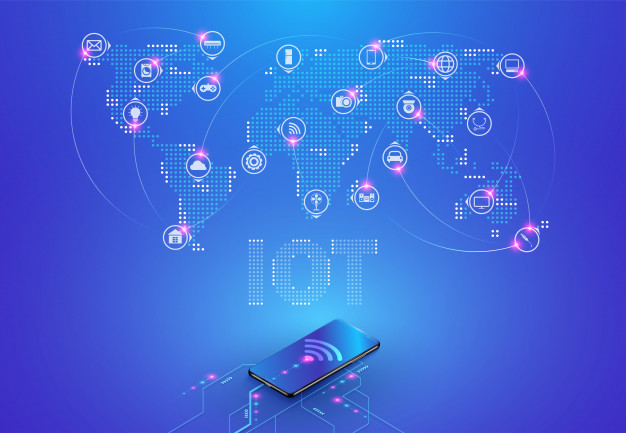
It’s now fairly clear that IoT will play a vital role in transforming the real estate industry. We’re talking smart buildings, smart cities, predictive analytics, and digital twins.
- Smart Buildings and Smart Cities
In next-generation buildings, we have several smart sensors added to the design. This includes energy meters and thermostats, motion sensors that can switch on and off lighting systems based on need, smart door and entry management, and even AI-enabled refrigerators. It can include IoT-enabled security systems including access control to specific locations in a building.
Read More : “Industrial IoT (IIOT) Implementation:New Realm For IOT Development“
While the technology was prohibitively expensive in the early 2000s, today, installation costs have decreased, and more commercial and residential real estate owners are coming forth to invest in IoT in both residential and commercial scenarios.
It is important to build-in IoT solutions in the design phase of a project, but it can also be an “add-on” for an existing building.
Overall, the roadmap for technology solutions has to be designed in sync with strategic business needs – both short-term and for the long haul.
Smart cities look at the use of IoT to collect and analyze data to improve public facilities and services, commercial and residential infrastructure, and more. Europe is leading the race in implementing smart technology within its cities. Amsterdam, for example, is planning to offer solar panels and home energy storage units in households, that will be connected to the city’s smart grid, thus allowing residents to store energy during non-peak hours. Similarly, London is experimenting with a smart parking technology in which drivers don’t have to spend a lot of time identifying parking spaces, thus reducing traffic congestions, and Copenhagen is monitoring bike traffic in the city in real-time to identify and improve bike routes in the city.
- Predictive Analytics
Aiding these two developments is predictive analytics. IoT enables predictive maintenance of devices/assets in homes and commercial properties. This includes energy solutions, water management assets, building information systems, among others. Having IoT-based sensors alone is not enough. The right data models need to be built to truly take advantage of the data these devices throw out.
Additionally, data from the past can also be used for data-centric decision making on property location, property design, and even consumer preferences.
- Digital Twins
Racing beyond smart cities and smart buildings, a technology that has been around for a while but is coming into demand is digital twins. Digital twins combine AI (artificial intelligence) and IoT to collect real-time data on all previously unconnected systems in a building, such as mechanical equipment, IT infrastructure, plumbing, roofs, walls and windows, and building automation systems and shows us a real-world prototype.
In simpler words, it presents a digital visual of every physical asset in a building and data related to it.
In the construction industry, for example, digital twins have been used for a while to simulate scenarios before making expensive and key decisions. For building operators, on the other hand, digital twins offer several advantages. For one, if a piece of equipment has failed, the digital twin of the equipment and historical data related to its performance and breakdown enables the operator to quickly evaluate the severity of the issue, and offer actionable solutions, that optimize usage of labor and material resources.

Dr. Michael Grieves from the University of Michigan is credited with first coining the term, Digital Twin. In fact, Digital Twin Technology was included in Gartner’s Top 10 Strategic Technology Trends in both 2017 and 2018. Gartner predicted there would be 21 billion connected sensors by 2020, making digital twins possible for billions of things.
There are several examples of Digital Twin technology. NASA uses it to research and explore next-generation vehicles and aircraft; Chevron uses it to monitor several key data points from equipment deployed in oil refineries and fields. Interestingly, digital twin technology is used by automotive brands to improve the performance of their Formula 1 racing cars.
The Future of Proptech: Buildings-as-a-platform
Today, the US $9.6 trillion real estate industry is undergoing rapid disruption with the emergence and adoption of newer technologies to make real estate more cost-efficient and customer-friendly.
If the Government, commercial real estate managers, and residential real estate owners come together to work collectively to build smart homes, cities and infrastructure, we will be looking at a future where buildings-as-platform will become a reality. Instead of looking at physical spaces as physical assets, we can leverage IoT to connect all systems, devices, and assets in a building, aggregate data, and create actionable information for enhanced decision-making.
Read More : “Internet of Things (IoT): The Roadmap to a Smart Future“
There is potential for technology-enabled buildings to become more workplace friendly, tenant-friendly, and environment friendly, and at the same time reduce operational costs, ensure better decision-making, and improve environmental sustainability.
Synopsis:
The industry now is evolving and has some exciting opportunities in store. At MSys Digital, we’ve deep expertise and experience in designing relevant IoT Solutions for your use case. We bring in several years of hands-on experience in IOT, Digital Twins and Predictive Analytics. Importantly, we don’t deploy technology for the sake of it. Our leaders understand specific business needs and scenarios, and then design a roadmap where technology comes in only to solve specific problems.
For more inputs on how can our IoT experts help you with our solutions, please drop in your queries/thoughts/details to info@mobinius.com and we shall revert to you quickly!
